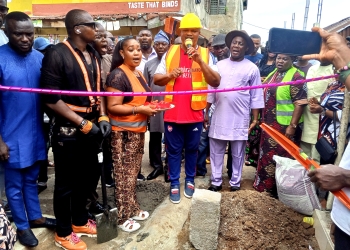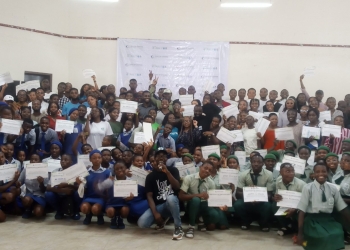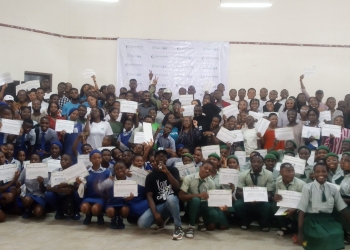Rep. Bassey Akiba.
By Anietie Akpan
The Member representing Calabar Municipality/Odukpani Federal Constituency in the House of Representatives, Rep. Bassey Akiba, has raised concerns over the impending flood expected to hit 30 states in Nigeria.
A release from the Lawmaker’s Bridge Media team stated that, the 2025 Annual Flood Outlook released by the Nigeria Hydrological Services Agency(NIHSA), said flooding is expected to hit 30 states and the Federal Capital Territory (FCT) in 2025, putting more than 1,200 communities at high risk.
States at high risk include: Abia, Adamawa, Akwa Ibom, Anambra, Bauchi, Bayelsa, Benue, Borno, Cross River, Delta, Ebonyi, Edo, Gombe, Imo, Jigawa, Kebbi, Kogi, Kwara, Lagos, Nasarawa, Niger, Ogun, Ondo, Osun, Oyo, Rivers, Sokoto, Taraba, Yobe, and Zamfara.
Additionally, 2,187 communities in 293 Local Government Areas (LGAs) across 31 states and the FCT are projected to face moderate flood risk, according to the 2025 forecast.
Also, Coastal and Riverine Flooding are anticipated in Bayelsa, Cross River, Delta, Lagos, Ogun, Rivers, and Ondo due to sea level rise and tidal surges, threatening coastal communities and ecosystems.
In view of this, Akiba has called for an urgent preparedness and the adoption of comprehensive, adaptive strategies to effectively manage the risks and impacts of flooding across vulnerable communities in Nigeria.
He said, “the Annual Flood Outlook should not be treated as a mere forecast. It is a wake-up call for proactive governance. Flood disasters have become recurring challenges due to climate change, poor urban planning, deforestation, and inadequate drainage systems. The time to act is now.”
The lawmaker stressed the importance of early warning systems, community sensitization, investment in green infrastructure, and the enforcement of environmental regulations.
He also advocated for “collaboration between federal, state, and local governments, as well as traditional institutions and civil society organizations, to ensure an inclusive approach to disaster risk reduction and response”.
Akiba further urged the National Emergency Management Agency (NEMA), NIHSA and other relevant bodies to intensify public awareness campaigns, especially in high-risk areas.
He emphasized the need for local councils to map out flood-prone zones and integrate disaster risk planning into their development agenda.
While enjoining citizens to remain vigilant, adhere to safety advisories, and cooperate with government agencies tasked with environmental protection and emergency response, he reiterated his commitment to championing legislative interventions that promote environmental resilience, sustainable urban planning, and climate adaptation strategies.
“We must invest in flood-resilient infrastructure and ecosystem restoration projects to protect our communities. Preparedness today will save lives and resources tomorrow”, he added.






